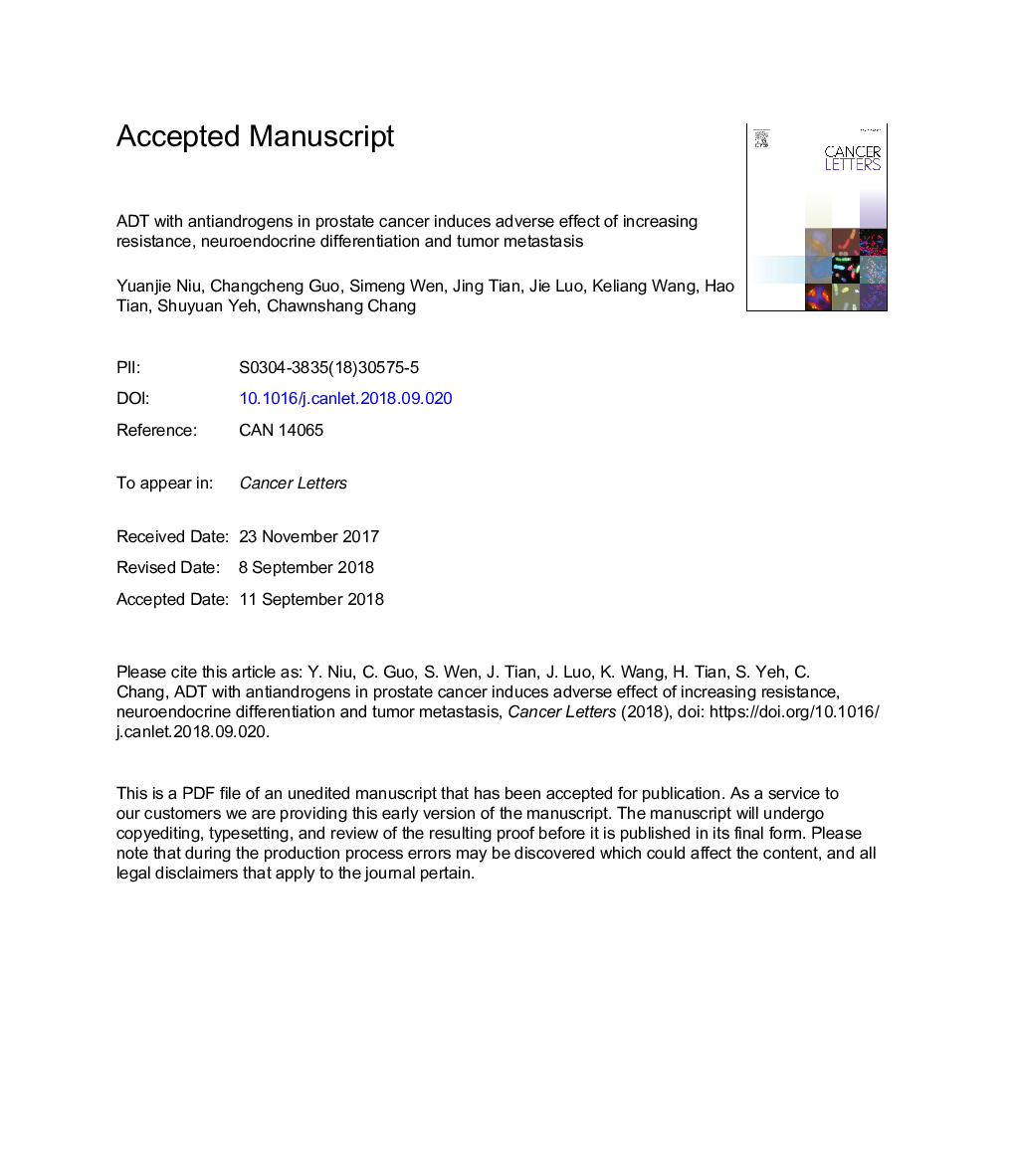| Article ID | Journal | Published Year | Pages | File Type |
|---|---|---|---|---|
| 11025934 | Cancer Letters | 2018 | 30 Pages |
Abstract
Prostate cancer (PCa) is the most common cancer and the 2nd leading cause of cancer-related deaths among men in the United States. Androgen-deprivation-therapy (ADT) with antiandrogens to target the androgens/androgen receptor (AR) signals remains the standard therapy for advanced PCa. However, most of the PCa patients who received ADT with antiandrogens, including the recently developed Enzalutamide (Enz) that might extend PCa patients survival an extra 4.8 months, will still develop the castration (or antiandrogen) resistance. Mechanism dissection studies suggest these antiandrogen resistances may involve the induction of AR splicing variants and/or AR mutants. Further preclinical in vitro/in vivo studies suggest ADT-antiandrogens may also enhance the neuroendocrine differentiation (NED) and PCa cell invasion, and these unwanted side-effects may function through various mechanisms including altering the infiltrating inflammatory cells within the prostate tumor microenvironment. This review summarizes these unwanted ADT-induced side-effects and discusses multiple approaches to overcome these side-effects to better suppress the PCa at the castration resistant stage.
Keywords
Related Topics
Life Sciences
Biochemistry, Genetics and Molecular Biology
Cancer Research
Authors
Yuanjie Niu, Changcheng Guo, Simeng Wen, Jing Tian, Jie Luo, Keliang Wang, Hao Tian, Shuyuan Yeh, Chawnshang Chang,
